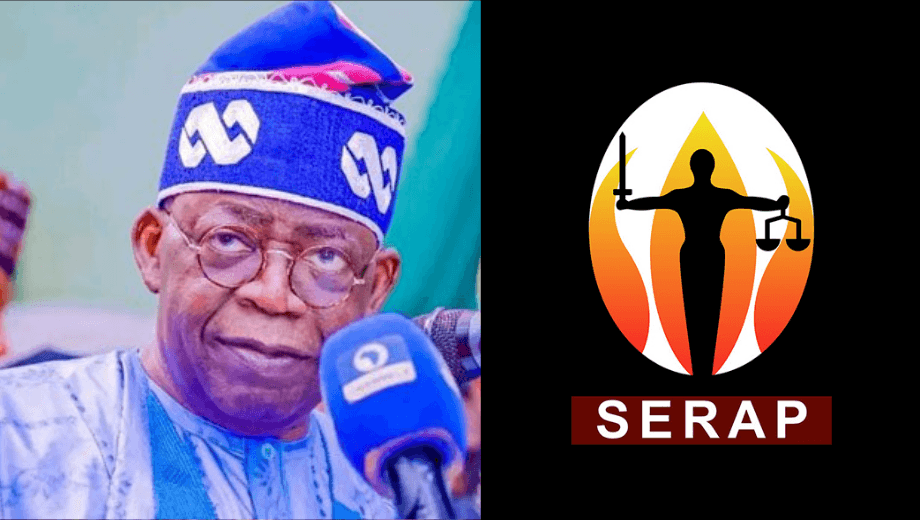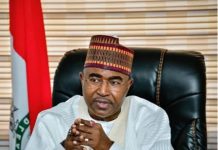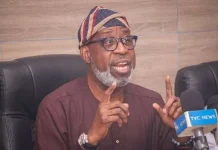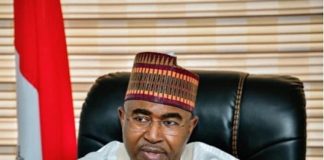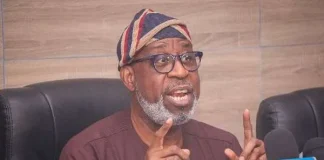🌿 Ruzu Non-Alcoholic Herbal Bitters
Ruzu Non-Alcoholic Herbal Bitters is a natural health supplement specially formulated to:
- ✅ Promote general wellness
- ✅ Detoxify the body
- ✅ Support the treatment of various ailments
Made from a powerful blend of 100% organic and medicinal herbs, Ruzu is completely alcohol-free, making it ideal for:
- 👪 All age groups
- 🌱 Health-conscious individuals
- 🌿 Anyone seeking non-alcoholic herbal remedies
Whether you're looking to boost your vitality, cleanse your system, or support healing the natural way, Ruzu Bitters offers a trusted herbal solution.
Four concerned Nigerians and the Socio-Economic Rights and Accountability Project (SERAP) have sued President Bola Tinubu’s administration in the ECOWAS Court of Justice for not disclosing the forensic audit report on the Niger Delta Development Commission (NDDC).
Top government officials and lawmakers are accused of embezzling N6 trillion between 2001 and 2019, according to the study.
In 2019, the late former President Muhammadu Buhari requested a forensic examination of the NDDC’s activity in response to the massive corruption charges. Furthermore, Nyesom Wike, the Minister of the Federal Capital Territory (FCT), reportedly claimed that a former minister’s wife had amassed N48 billion over a 12-month period “to train Niger Delta women.”
Chief Jude Igbogifurotogu Pulemote, Ben Omietimi Tariye, Princess Elizabeth Egbe, and Prince Taiwo Aiyedatiwa are the four Nigerians involved in the lawsuit.
A declaration that the Nigerian government’s failure to publish the NDDC forensic report constitutes a fundamental breach of the nation’s international human rights obligations is what the plaintiffs are requesting in suit number ECW/CCJ/APP/35/25, which was filed last Friday before the ECOWAS Community Court of Justice in Abuja.
In their request, the plaintiffs are asking for “an order directing and compelling the Nigerian government to publish and ensure access to information to the NDDC forensic report which has been submitted to the government but remains shrouded in secrecy.”
Additionally, the plaintiffs are asking for “an order directing and compelling the Nigerian government to adopt and ensure effective measures to address transparency and accountability gaps in the spending of public funds budgeted for the NDDC.”
According to the NDDC forensic report, the Nigerian government has infringed upon our right to know the truth about the corruption allegations. Impunity and the concealment of the accusations detailed in the report are being committed by obstructing its dissemination.
“The right of the public to open access to information and to know what governments are doing on their behalf is implicit in freedom of expression. Without this, the truth would linger and people’s participation in government would remain fragmented and illusory.”
“The Nigerian government has not shared the NDDC forensic report with the plaintiffs or the Nigerian public, nor has it offered any justifications or explanations for doing so.”
In terms of the NDDC forensic study, the Nigerian government is legally required to provide and ensure openness and information access as part of the right to seek, receive, and disseminate information of any sort.
According to the lawsuit that was brought by Kolawole Oluwadare, Kehinde Oyewumi, and Andrew Nwankwo on behalf of SERAP and the four Nigerians in question, “There is an overriding public interest in the publication and disclosure of the NDDC forensic report.”
Because of the Nigerian government’s persistent refusal to release the NDDC forensic report, the plaintiffs are unable to thoroughly examine the report and hold the government responsible, which undermines the rule of law and infringes upon their other rights.
The information requested is not classified for national security reasons because the NDDC forensic report deals with matters of accountability, transparency, and human rights, all of which are addressed by the International Covenant on Civil and Political Rights and the African Charter on Human and Peoples’ Rights.
The Nigerian government is required to uphold, encourage, and guarantee public information access, which is a fundamental human right guaranteed by Article 9 of the African Charter on Human and Peoples’ Rights and Article 19 of the International Covenant on Civil and Political Rights. On both human rights accords, Nigeria has ratified them.
According to Article 19 of the International Covenant on Civil and Political Rights and Article 9 of the African Charter on Human and Peoples’ Rights, the Nigerian government is positively required to grant the plaintiffs access to the NDDC forensic report that is in its custody and control.
A fundamental instrument for fostering civic engagement is information access, and the plaintiffs are entitled to take part in issues of public interest, such seeking justice and accountability for corruption victims as detailed in the NDDC forensic report.
Nigeria is a state party to several human rights treaties, including the International Covenant on Civil and Political Rights and the African Charter on Human and Peoples’ Rights, which are based on these issues of public interest.
In order to effectively exercise their human rights and hold the Nigerian government accountable for the accusations made in the NDDC forensic report, the plaintiffs would need access to information about it.
Read Also: WAEC 2025 Not Cancelled — Education Minister Dismisses Rumours
“The public’s access to the NDDC forensic report would also encourage democratic engagement and give the people the ability to hold the Nigerian government responsible and curb corruption here.”
“The Nigerian government and state administration must adhere to the principles of maximum disclosure and good faith in order to ensure the full and efficient exercise of the right of access to information.”
Article 19 of the International Covenant on Civil and Political Rights and Article 9 of the African Charter on Human and Peoples’ Rights both contain the principle of maximal disclosure, which serves as a guiding principle for the right to information.
“A legal framework where transparency and the right to access are the norm and are only subject to stringent and restricted exceptions is required by the principle of maximum disclosure. The rule is the right to obtain information; the exception is confidentiality.
The freedom of information access is not unqualified; there may be restrictions on it.
However, these restrictions must adhere closely to the standards established by international human rights law, which provide that restrictions must be extraordinary, legally recognized, founded on a legitimate purpose, and proportionate and required to achieve that purpose.
However, they must consider that access to information is the rule and concealment is the exception; the exceptions shouldn’t become the norm.
It is the Nigerian government’s responsibility to prove that restrictions on the publication and availability of information about the NDDC forensic findings are in line with both international human rights standards and the nation’s associated legal obligations.
“The Nigerian government’s discretionary and capricious actions must be avoided in imposing limitations on the right to information and transparency, as the NDDC forensic report is under its custody and control.”
“The denial of access to information about the NDDC forensic report is incompatible with the requirements of the International Covenant on Civil and Political Rights and the African Charter on Human and Peoples’ Rights, and it violates the plaintiffs’ right to a legal remedy.”
A date for the suit hearing has not yet been set.

